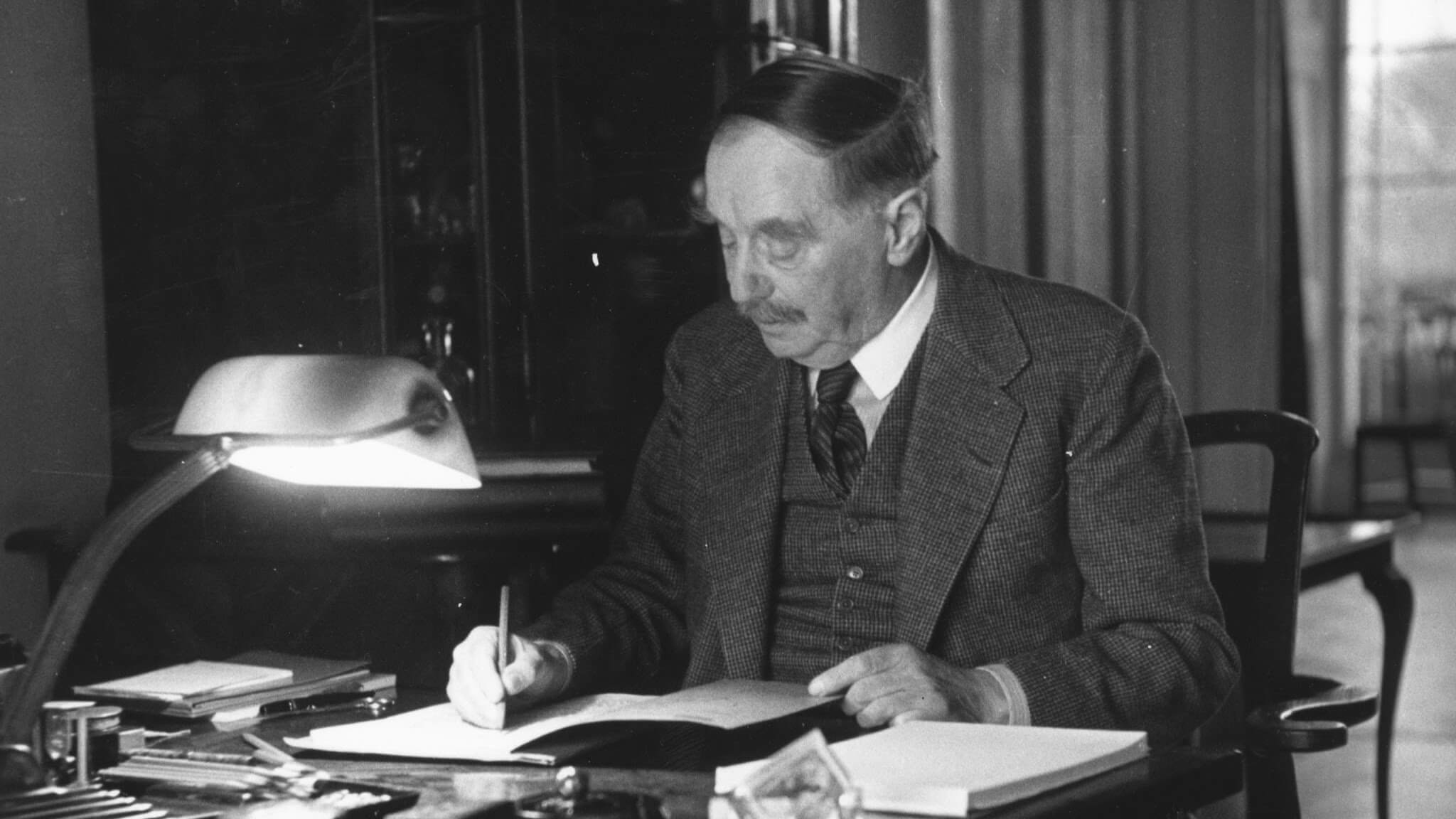Quotation Mark-Up: Honesty In Advertising
The quote we’ll be examining comes from H.G. Wells, an early pioneer of science fiction at the turn of the century, most famous for The Invisible Man, The Island of Doctor Moreau, and War of the Worlds. His view was as follows:
“Advertising is legalized lying.”
– H.G. Wells
Question 1: What is the original context?
This line comes directly from a work of fiction, published in 1908, titled The War in the Air. It chronicles a prophetic story of a large war in the 1910s that saw nations utilizing aircraft to dramatically expand the impact of war.
Without reading the entire text, it’s difficult to identify this situation in which it was uttered. In fact, as famous as the quote is, you can find little about its context. It seems to have risen to prominence because it expresses in clear terms a feeling felt by many.
The only important contextual note is the time period. Wells was expressing his distaste for advertising at is existed in 1908, not in the modern era. He died in 1946, a decade or so prior to the creative revolution that brought about modern advertising.
Question 2: Is this quote meant to be taken literally?
I believe so. It is devoid of metaphor and there is hardly a wasted word. The only word with discussing individually is the third: legalized. This implies that lying, outside the context of advertising, is illegal. Or that advertising is the only form of lying expressly legal.
In either case, I believe he doesn’t mean this word to be taken literally. Instead, it seems to me that he’s using legalized as a substitute for socially acceptable.
Question 3: What is really being said, and do I agree?
What’s being said here is simple. Advertising exists to be manipulative. More than that, it executes that manipulation through patent falsehoods. I do not agree with this idea.
I’ll start by examining it legally and socially, and then provide my own personal take.
Legally, we have truth-in-advertising laws at the state level and the FTC at the federal level ensuring that what companies say to consumers is reasonably honest and not misleading. Lying in advertising is the exact opposite of legalized.
For clarity, these rules didn’t exist in 1908. Advertising had the freedom to be more dishonest then than it does now. But that’s not the only key time-period difference that renders this quote useless in a modern context.
Socially, advertising was virtually brand new, as was mass communication. We have known for decades now to take ads, films, tv shows, music, etc. with a grain of salt. There is an amount of dramatic exaggeration that goes into nearly all pieces of content. However, this social understanding didn’t exist in 1908. So, people were easier to mislead and companies had more freedom to do so.
Let’s fast forward to today and segway to the next question.
Question 4: How does this quote apply to the advertising/creative industry?
It’s useful in an advertising context as an example of what not to do.
Brands are now celebrated for honesty in advertising. We’ve drifted (and hopefully continue to drift) away from using models to represent the average person, from selling based on radical exaggeration, and from misleading audiences about the authenticity of a product.
Critics of the honesty of advertising will site trivial examples, showing how commercials are shot. Motor oil is used in place of syrup in pancake commercials because it won’t absorb into the pastry. Burger commercials use painted freeze-dried ingredients so the item can hold up under the heat of studio lighting. If you have an issue with this sort of dishonesty, then you probably don’t enjoy going to the movies much either. Most people are a part of the shared social understanding that this is okay. That this falsehood is about conveying an idea that is true.
In fact, most brand strategies are based on telling the truth. A fundamental piece of brand building is having the ability to back up the claims made in ads, on social media, and on websites.
Reputation management exists because brands don’t always follow through. But honesty in advertising exists today more than ever because lies are easier to spot, reputations are easier to ruin, news is easier to share, and brands know that their audience wants the truth.
The truth in advertising has never been more marketable.
Question 5: Has anyone said it better?
Any number of people. From founding fathers to fathers of modern advertising to present-day brand building experts, there are limitless champions of using the truth in advertising. I pulled three examples below.
“The most powerful element in advertising is the truth.” – Bill Bernbach
“Making promises and keeping them is a great way to build a brand.” – Seth Godin
“The advertisement is the most truthful part of a newspaper.” – Thomas Jefferson
To conclude, advertising is about conveying a feeling within a message. It’s not about delivering a list of proven differentiators with cited sources to camera. Advertising isn’t absolute truth, but virtually nothing is. When advertising works well, it’s using the honesty wiggle room we’ve allowed it to introduce something beneficial into our life. And then it’s our choice to accept it or not.
